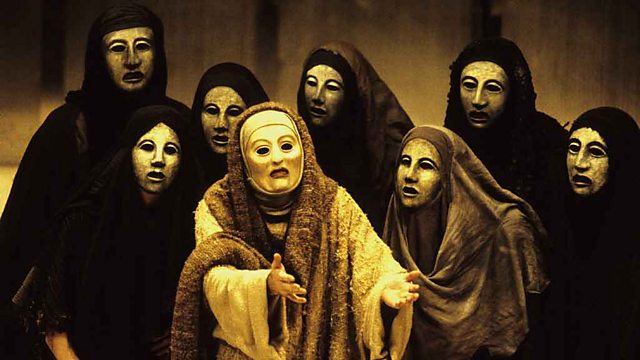the oresteia: a review
The Oresteia (a review)
rating: ⭐⭐⭐✨
I read Elektra by Jennifer Saint, and then I saw a tiktok of a few lines from the Oresteia ("I'll take care of you." "It's rotten work." "Not to me. Not if it's you.") so of course I had to read this. So I borrowed Anne Carson's translation of the Oresteia from the library, but then I realized that was not the right one because it combines three different playwrights' versions of the story. So then I went back and also borrowed Alan Shapiro and Peter H. Burian's translation, and then I read both translations concurrently.
It is conceivable that you have not read my review of Elektra, in which case I will summarize the plot of Aeschylus's Oresteia. Spoilers ahead for millennia-old myth. Orestes and his sister kill their mom for killing their dad for killing their sister. Orestes gets terrorized by revenge demons. Athena establishes the concept of a criminal trial and Orestes is acquitted. By the way, if you think revenge demons sound cool, you might enjoy the video game Hades, which has revenge demons in it that you have to fight occasionally. This game does, however, delete your progress when you die. Something to consider.
Anne Carson's Oresteia is the same as Aeschylus's Oresteia for the first act (Clytemnestra murders Agamemnon), but the second act is a little different, and the third act is really different. I would recommend reading this Oresteia if you are interested in reading one of the Oresteias. I thought this translation was much more readable and sounded like actual people talking, in comparison with the other translation, which was much more flowery and dense, although by no means incomprehensible. However, if you are really here for the courtroom drama, then you should read the translation by Shapiro and Burian.
To be completely honest, I read this play over a week ago, so if I had any substantial opinions, I've forgotten them. I remember liking Cassandra a lot. She and Clytemnestra were the highlights of the play. I don't really like Electra or condone her actions, but she is (as in the book Elektra) fun to read about. Agamemnon had it coming. I enjoyed Orestes's friendship with Pylades in Anne Carson's translation, and I enjoyed Chief Justice Athena in Shapiro and Burian's translation. So, both translations had their own unique high points. I don't have a lot of criticism, which is just as well because Aeschylus is super dead.
I thought the Oresteia was a pretty good play. I enjoyed reading it, and it made me feel smart. It did not change my life. It was good enough that I am interested in reading more ancient Greek plays. If you have suggestions, you should tell me in the comments.

Comments
Post a Comment